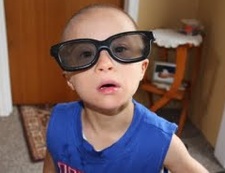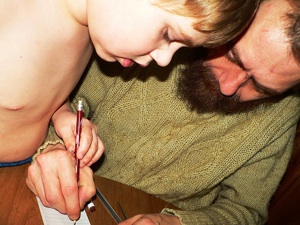
This thread (starting
here and
here) questioning efforts to "cure" Down syndrome began with a
quick email from Jenn Power, community leader at L'Arche Cape Breton, mother of identical twins with Down syndrome, and—disclosure—
Contrarian's daughter-in-law.
At Contrarian's request, she has elaborated:
In the end, for me, this all comes back to people. Josh, Jacob, Mary, Cathy, Kate, Janet…these people have Down Syndrome. These people are my family, my friends, my teachers. Without the benefit of that extra chromosome, they would not be who they are. Their intellectual “impairment” gives them an insight and an emotional intelligence and maturity that I can only aspire to. They do not need a needle in their brain to make them more functional, to help them find their car keys. What they need is a society that values what they have to offer. I would like to think that I can be a part of creating that society
Full post after the jump.
27 November, 2009

 This thread (starting
This thread (starting  Shortly after I posted
Shortly after I posted